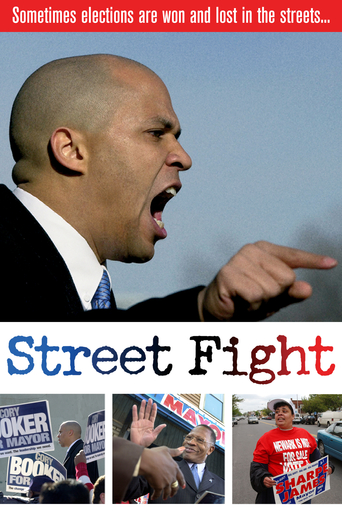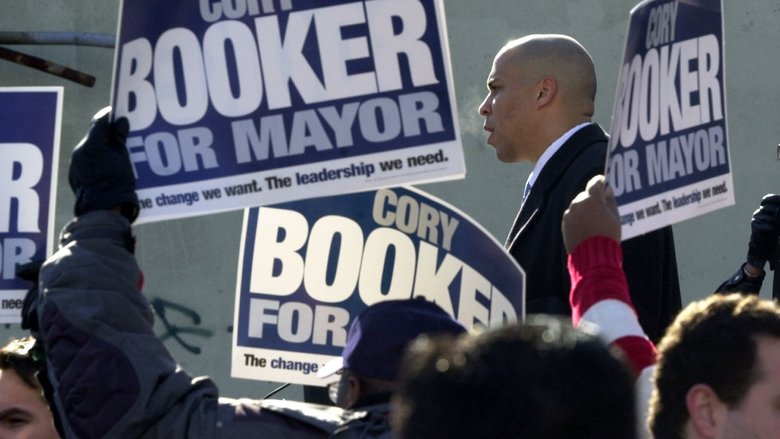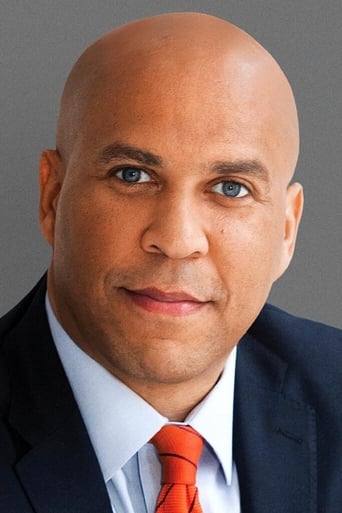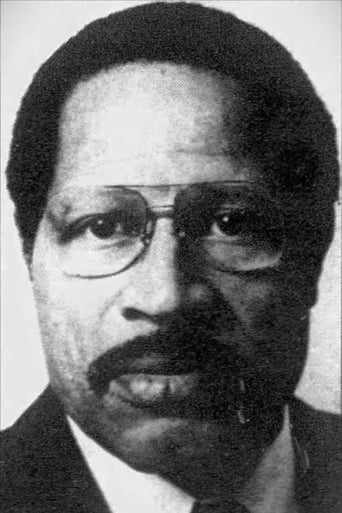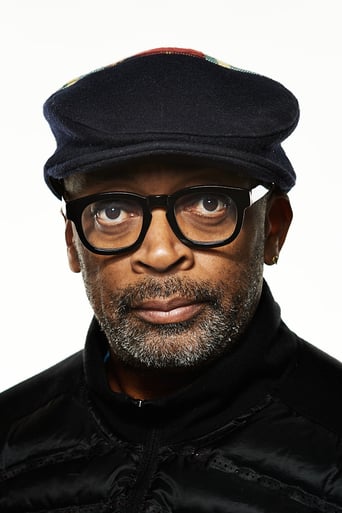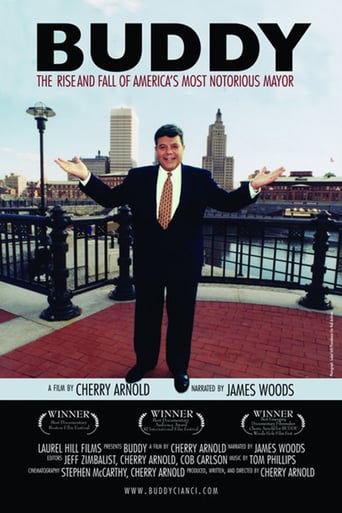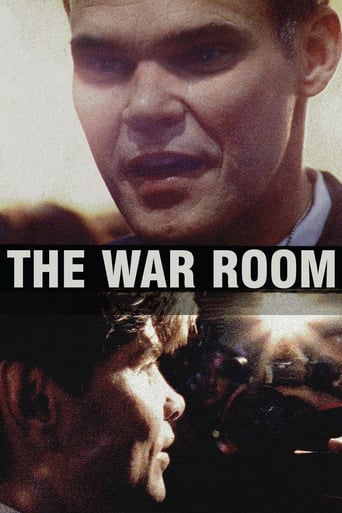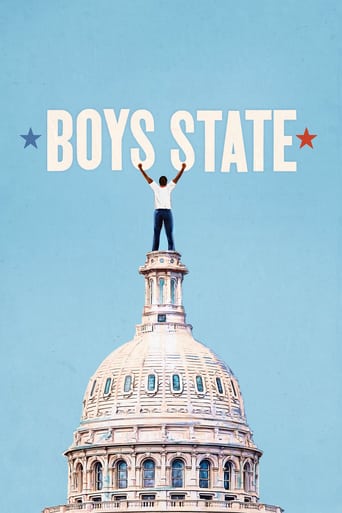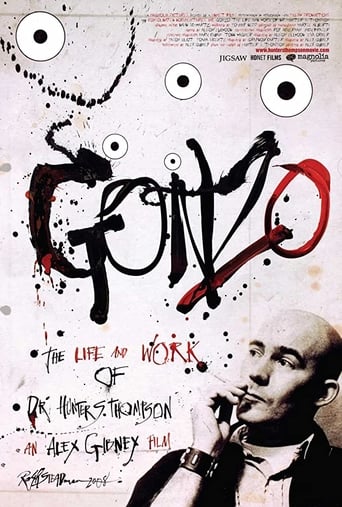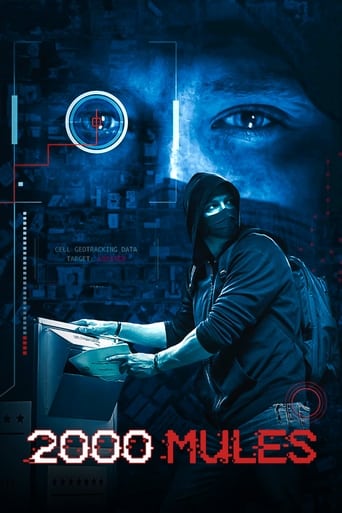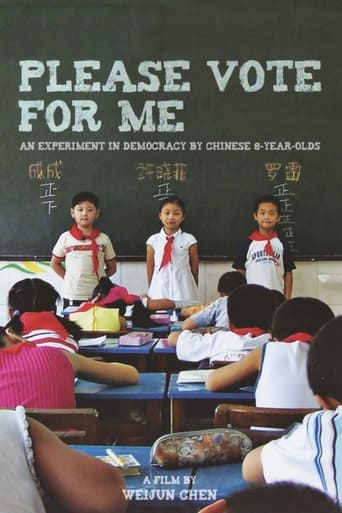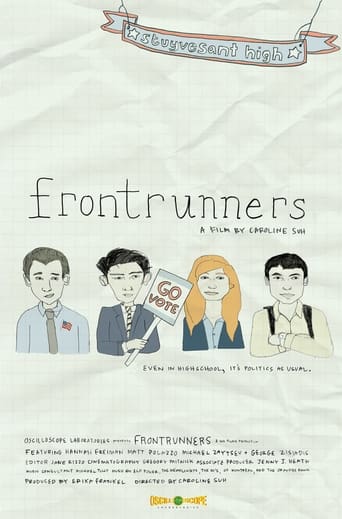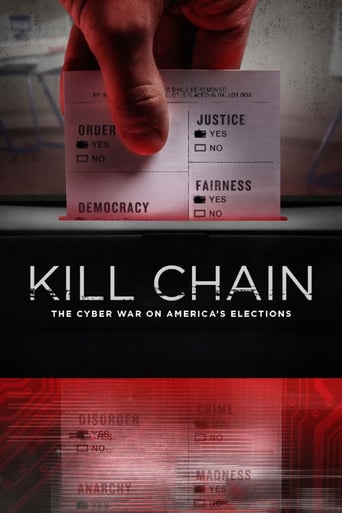Street Fight (2005)
This documentary follows the 2002 mayoral campaign in Newark, New Jersey, in which a City Councilman, Cory Booker, attempted to unseat longtime mayor Sharpe James.
Watch Trailer
Cast


Similar titles
Reviews
the audience applauded
Just what I expected
Fresh and Exciting
best movie i've ever seen.
There is an old saying in Newark, New Jersey that "the only way that an incumbent leaves office is either death or conviction." Street Fight, a documentary following the 2002 mayoral election of Newark works to address and highlight that issue. Marshall Curry, the director of the documentary, follows Cory Booker, the challenger to long-term incumbent, Sharpe James. Booker, the son of civil rights activists, grew up in a predominantly white suburb north of Newark. He was a high school all-American football player and graduated from Yale University. He attempts to unseat James because of the lack of change he sees from the current mayor. He works to unite the people through a grassroots movement against James, the man who has been in office since 1970.Street Fight attempts to reveal the harsh realities and the pseudo-democracy that exists in modern day local politics. Curry argues that local politics are not as fair as they seem to be, a claim that he supports with solid evidence through Booker's campaign. Though Curry only shows footage in support of Booker, it is not difficult to distinguish the actual differences between both candidates' approaches.Booker approaches his campaign the best way that a challenger against a long-term incumbent can, through a mainly grass-roots movement. He spends his time with the people who he knows have been the most negatively affected by James, the poor and the working class. Sharpe clearly favors the higher class above the lower and Booker cleverly uses that to his advantage. He realizes that he must first get his name out to the masses, so he does it in the most reasonable, old-fashioned way, door-to-door campaigning. By continuously showing Booker actively interacting with citizens of Newark and expressing his concerns, Curry enforces that Booker is running an honest, down-to-earth campaign. He does not waste his efforts trying to convince those who he knows he cannot, rather he takes a more logical step and attempts to acquaint himself with the common people. In a further attempt to connect with the people, Booker had been living Brick Towers, one of the worst public housing buildings in Newark.Not only does Curry assert that Booker runs a clean, honest campaign through his actions, he reveals that James is cheating his way to victory. One of the film's main arguments is that Sharpe James used threats and force to bully Booker and his supporters into ending his campaign. This also furthers the claim that local politics are an ugly business and that politicians will go to any length to secure their positions. Throughout the campaign, Booker, Curry, supporters and other camera men are assaulted by police who support James. Though they are not doing anything illegal, the police interrupt them under orders given by the mayor. Furthermore, many local businesses that have expressed support of Booker whether it be through word of mouth or signs in their stores, are threatened with being closed down by the city if they do not revoke their beliefs. These are not empty threats either, as a local car shop that had expressed prolonged support of Booker had been shut down by the government. Larger businesses are threatened with losing their government contracts, potentially losing them thousands of dollars.Booker and his supporters are assaulted and threatened not only indirectly by James and his hired muscle, but also directly. Curry portrays how James expresses hate towards Booker by using empty accusations and hateful speech. James goes to every extent to solidify his position, even slander Booker's name with claims that are not even true. He begins by claiming that Booker is a republican instead of a democrat, a claim that has no political backing. Eventually, Curry highlights the irrationality of James' claims by acknowledging that he goes to ridiculous extents to attack Booker. The mayor accuses James, clearly an African American, as being Jewish, white, and also gay. The most controversial claim that he makes results in a central theme of the documentary; James questions whether or not Booker is "black enough" to fairly represent the people. As uninformed as the claim is, it brings up one of the most discussed topics of the campaign. James, a man born and raised in Newark, is concerned that Booker is not the right kind of man to lead the city because of his upbringing and light skin.Ultimately, Curry concludes that politics are far more than who has the best agenda. Elections go far beyond who has done the best campaigning or who has collected the most funds. As Street Fight documents, many times elections come down to personal battles, with incumbents having an unfair advantage due to their connections and resources. In the resulting election of the documentary, Cory Booker ultimately loses by only around one thousand votes. Eventually, Booker does run again in the 2006 mayoral elections and wins by a landslide, proving that the political system is not as broken as Curry makes it out to seem; it is important to note that Sharpe James did not run for reelection that year. In the end, issues in politics will always exist. Campaigns will almost never be seen as fair. No matter how people attempt to address it, corruption and politicians go hand in hand. More often than not, election as close as the one between Booker and James may end up being nothing more than a street fight.
It is not often that you get to see what goes on in the day to day of a campaign. In Street Fight, we see a newcomer trying to unseat an incumbent that has a 16-year hold on office, and is not afraid to use all the power at his disposal to crush this upstart. In addition, those who have been feeding at the trough of city government for those 16 years do not want their gravy train stopped. Dirty politics, dirty government, and a dirty city badly in need of repair. It makes for a compelling directorial debut and a story that should make all of us want to fight for the person we most want to see in office. It takes more than a vote to change a government!
Most politically charged films focus on corruption at the higher levels of state, but STREET FIGHT gives us a curb-side view of something much smaller ...and much more important.The 2002 Newark, New Jersey Mayoral race is something most voters in the U.S. could care less about. Why should someone in, say, Pittsburgh, Pennsylvania pay attention to Newark's voting issues? Or someone in Fort Worth, Texas? Or San Francisco, California? Realistically, none of them would. But Newark is New Jersey's most populated city, and those in San Francisco and beyond might want to take a peak at what's happening to our democracy on a pseudo-microcosmic level.The film's primary focus is on Cory Booker, a Newark city councilman with his eye on the mayor's office. He's a Stanford and Yale graduate who lives in a slum within Newark. He's an idealist who's grown tired of his city's poor schools, poorer neighborhoods, and rising jobless rate. To get into the mayor's office, though, he'll have to unseat four-time incumbent Sharpe James, a man who's firmly entrenched within Newark's politics.We watch as writer/director/photographer Marshall Curry seeks to interview both sides of the race, first by checking in on Cory Booker's campaign, then by trying (in vain) to meet up with Sharpe James and his people. But once James' campaign personnel learn that Curry interviewed Booker already, he is immediately shunned and pushed aside (often in a very rough manner). Curry's camera is pushed around time and again, his microphone broken, and he's denied access to Sharpe James entirely. Even when Curry catches up with James at a public event, he's manhandled by Sharpe James' 'brute squad.' Most will find this very unsettling, as this is a publicly elected figure in a public place who is, in essence, acting like a thug.That we never touch on the political issues surrounding the campaign is interesting and absurd. These are both positive aspects of the film. It shows us how little our democracy means in many instances; it isn't the poor schools/neighborhoods/jobs that dominate voters' discussions, but who's "more republican" or "more black" (both candidates are black) or "campaign has more money" or "has visited a strip joint".In the end, we watch Sharpe James use every slimy tactic at his disposal in order to win votes (including bringing in paid James' supporters from out-of-state to help bolster support on election day). Booker doesn't win the election, thus giving the viewer a very negative view of New Jersey politics. But all is not gloom and doom.In 2006, Cory Booker returned to the mayoral race and took Newark by storm. Sharpe James uncharacteristically dropped from the race for unknown reasons while a new runner took up position against Booker, only to be squashed in the largest landslide win of any mayoral race in New Jersey history.But the bitter taste of the 2002 race still lingers in audiences minds after watching Street Fight. It's a tough film to watch, because we all want to believe that our democracy is flawless when, in fact, it has so many problems and shady dealings as to make one ill at the prospect.
Curry's unvarnished style and long sequences enhance the real life drama as he allows the story to unfold in front of us instead of manufacturing the drama by clever editing. Shot with a hand held camera and edited on a Mac, Curry the film-maker mirrors the determination and resolve of his main subject, political challenger Cory Booker. Repeated confrontations in the film make it clear that Curry had an opportunity to make himself the focus of a compelling side story, but he removes his ego completely. He only inserts himself as an occasional off-camera participant whose voice serves as a traditional chorus uttering simple, yet poignant reminders of what is at stake beyond the specific election he is covering. Like his presence in the film, Curry's voice-over narration is also sparse, yet effective. He sticks to open-ended observations and realizations, without ever crossing the line to offer value judgments. With its simplicity, small cast including chorus, and theme of family torn asunder, it is not unlike Greek tragedy...

